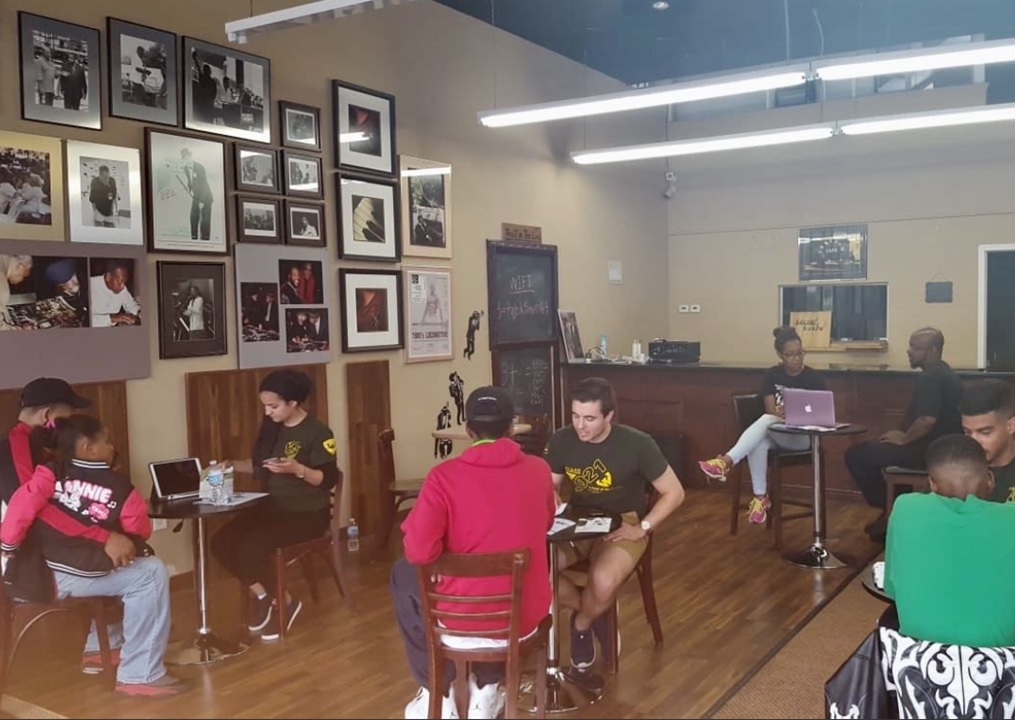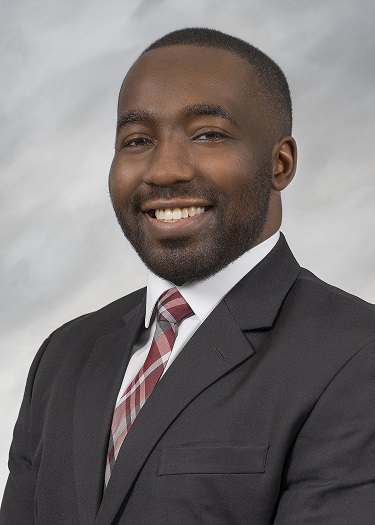
A study conducted by Wayne State University School of Medicine students received national recognition from the National Medical Association.
“Assessing Knowledge and Perceptions of HIV and PrEP after Barbershop-Based Interventions in Detroit,” presented by Obinna Onyeukwu, won second place at the Emergency Medicine section of the NMA’s Georges Benjamin Symposium.
“Everyone was impressed with our research and how much it could impact the African American community,” said Onyeukwu, a fourth-year medical student. “For this study, our primary objective was to assess the efficacy of a minority medical student-led barbershop-based intervention in improving HIV knowledge and misperceptions.”
During the 2018 project, WSU medical students set up shop in Detroit barbershops, where they spread awareness of HIV/AIDS and PrEP, a prescription drug that reduces the chances of HIV infection. Recent studies suggest that barbershops, as community centers, are effective venues for education on hypertension and sexual health education.

The students reported that despite advancements in HIV treatment and prevention, rates have been increasing, particularly in young African-American males, who often are less likely to see a physician regularly. African Americans have a three- to four-times higher risk of HIV infection than the general population. Statistics from the U.S. Centers for Disease Control and Prevention indicate that in 2009 they accounted for 44% of HIV diagnoses and that one in 22 African American men would be diagnosed with HIV.
The city of Detroit has the highest rate of HIV infection in Michigan. While 15,000 state residents have HIV, 10,000 of those live in Detroit.
The students gave barbershop customers a brief PowerPoint presentation on aspects of HIV, including prevalence, progression, common myths, methods to prevent transmission and treatment options. Participants completed pre- and post-education surveys, which showed that 75.86% had no knowledge of PrEP and none had taken PrEP. Analysis of the post-education surveys indicated improved knowledge of HIV, PrEP and incidence rates of HIV. Participants also affirmed that barbershops are an appropriate venue to educate young Black men on preventing sexually transmitted diseases.
“Our study not only supported minorities in training, but also demonstrated that medical student-led interventions can effectively improve HIV education,” Onyeukwu said. “Despite our small sample size, we found significant support to show that barbershops are an appropriate venue for educating African American males and holding this type of intervention. We believe our success was achieved in part by the involvement of minority health care providers and medical students, demonstrating the importance of diversity and inclusion in medicine.”
The students plan similar barbershop education sessions on Hepatitis C awareness, tobacco cession and blood pressure monitoring. They also plan to conduct similar sessions for African American women in hair salons.
Others involved in the study include Class of 2021 alumni Josée Smith, M.D., and Salma Mumuni, M.D. They worked with Latonya Riddle-Jones, M.D., assistant professor of Internal Medicine and Pediatrics.